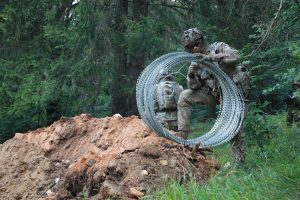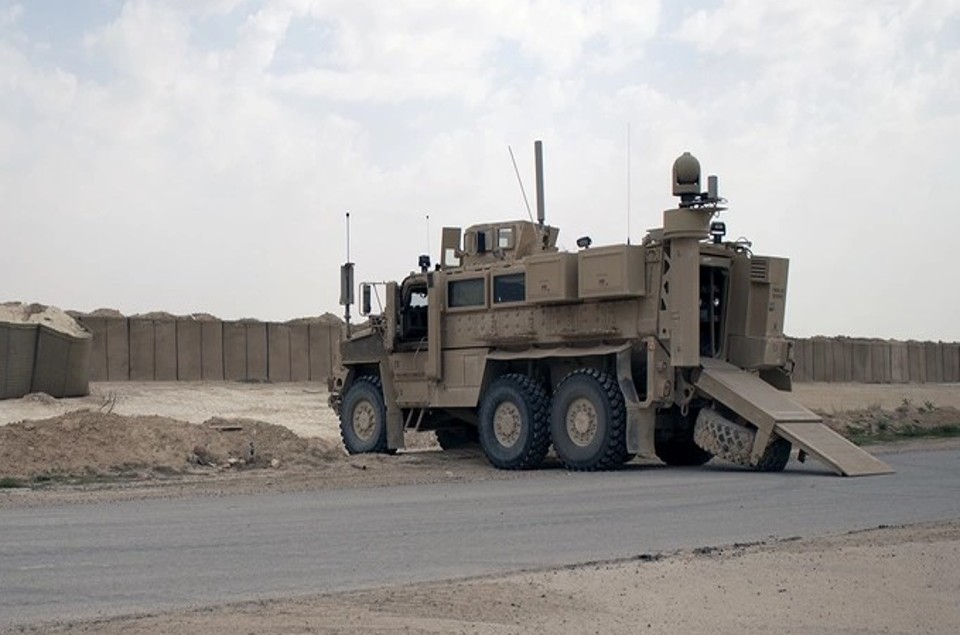The most important task you do as a Commander each day
The CC/PL Team asked company commanders “What is the most important task you do as a Commander each day [or week] as part of your personal battle rhythm?”
Company Commander Response:
On the second to the last day of each week I would review the current week and the upcoming week’s calendar to look at all the things we accomplished this week, and had to accomplish next week. I would share my thoughts on the last day of the week with my subordinate leaders and usually in our closeout formation to all Soldiers. I believe this time of reflection was important for a couple reasons:
1. Help share the “why” to thank everyone for their hard work that week and share how the next week’s work fit into the larger picture.
2. Review the agenda for the next week before we took off for the weekend. Ensured subordinates had standing orders rather than waiting for the word Monday.
3. Provided a venue to understand the priorities of the command. There are always more things to do than there is time, so I wanted to provide some guidance.
Company Commander Response:
In garrison: once a week, a CO should give a concise (1 paragraph) intent for the week ahead: the company’s ultimate purpose, key tasks, end states, and then the main effort and supporting efforts for each day. This might be the most critical task that the CO does- if he or she doesn’t do this, no one else will. I did this on Thursday afternoons at my company training meeting, then reiterated this on Monday mornings as the week kicked
Company Commander Response:
Talk to your Soldiers. It’s that simple.
Whether it’s your officers, NCOs, or lower enlisted, if you see an opportunity throughout the day or week, just take a few minutes to ask them about their homelife, what they have planned for the weekend, sports, etc. The point is you can learn so much more about your subordinates, and your command climate through a casual 5 minute conversation, than you can through other means. It also makes you more approachable as your Soldiers get opportunities to see you just being yourself and talking about non-work related topics. Show interest in them as people and their lives, and they will trust that you care.
Never pass up an opportunity to talk to your Soldiers.
Company Commander Response:
What is the most important thing I do each week: Read books, blogs, forum discussions, etc. to grow professionally. It is important that reading and self develop be multi-disciplinary in nature, as the problems we are going to be asked to solve will not be confined to military in nature.
What is the personal battle rhythm event is most helpful to achieving my objectives: What to Do When There’s Too Much To Do by Laura Stack provided me with a battle rhythm event/ TTP that has immeansely helped me manage my day-to-day operations. Here are the basics:
1. Keep a Master To-Do List — I take tons of notes throughout the day, to include ideas for projects that I want to tackle, and future reading material, and specified or implied tasks. I transfer these notes on a daily basis to my Master To-Do list, which I keep on Evernote. At the time of this writing, it is nine pages long.
2. Manage a Hit List — At the end of the week, I review my Master To-Do list and populate the next week’s HITLIST, identifying my priorities of effort for the week ahead. This list is managable and realistic.
Using these two lists, I map out my next two weeks on my Outlook Calendar. My priorities of planning are Troop Decisive Points (major muscle movements where friction is likely to occur or where I should be), mandatory higher headquarters meetings, HITLIST items, routine Troop activities, ‘highly recommend/ strongly encouraged’ higher headquarters meetings and events, and Master To-Do List items.
I align my Master To-Do list with my stated priorities (Mission Readiness, Training and Training Management, and Individual Professional Development) and Troop Goals in order to prioritize my efforts.
The title sounds ridiculous, but What to Do When There’s Too Much To Do by Laura Stack is a great short read that offers common sense solutions to prioritizing and managing your workload.
Related Posts

Fighting as an Enabler Leader
(U.S. Army Photo by Cpl. Tomarius Roberts, courtesy of DVIDS)Enablers provide capabilities to commanders that they either do not have on their own or do not have in sufficient quantity …

Defeating the Drone – From JMRC’s “Skynet Platoon”
If you can be seen, you can be killed—and a $7 drone might be all it takes. JMRC’s Skynet Platoon discuss their TTPs to defeat the drone.

3 Deployments Before Captain: Reflections From Down Range
Deployments challenge junior officers beyond their primary duties, often demanding adaptability, wellness management, proactive leadership, and moral integrity maintenance.
